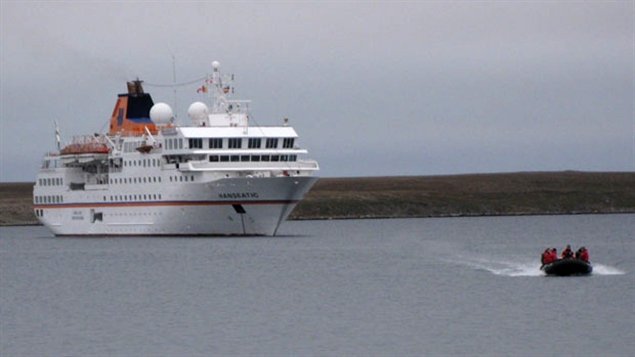The Arctic Council of eight circumpolar nations, plus various indigenous groups has wrapped up its summit in Whitehorse Yukon this week.
During Canada’s two-year term as chair, the council has agreed to study four main subjects, marine oil-spill preparedness, adaptation to climate change, mental health of northern peoples,and gender equality.
In terms of potential oil-spills a task-force has been struck to look at marine oil-spill prevention. Canadian Environment Minister Leona Aglukkaq said this is more becoming increasing important as shipping appears set to expand in the North as ice cover retreats and the Northwest Passage becomes increasingly accessible to both tourist and commercial shipping. Finland’s senior Arctic official added that oil-spill safety plans are critical because energy development in the far north is inevitable. “It will happen anyway, so let’s do this in the best possible way we can.”
Another task-force co-chaired by Canada will look at pollution from methane and black carbon, or soot, which the council has called “short-term” problems driving climate change.
Still another task force will examine issues of scientific co-operation – the sharing of data along with a pledge to let scientists move freely, while another group led by Canada and the U.S. will study “adaptation to climate change.”
The council also asked its Indigenous Peoples’ Secretariat for help in figuring out how to add more indigenous knowledge to research, a key Canadian priority. At the same time, the council discussed a renewed request from aboriginal groups, six of which are permanent participants, for funding support to attend all the meetings and working groups. No decision was made.
Norway’s Arctic officer, Else-Berit Eikeland, said Canada, “with Kyoto and emissions and so on,” has a different view of environmental questions, but that “we have more in common than our differences. It’s like a big family.” Still, there were some questions about whether Canada is muzzling its scientists. An American official questioned whether the role of science will be lessened under Canada’s term. A Canadian
Asked whether the council – which met behind closed doors – discussed allegations Canada’s government is muzzling its scientists, Mr. Borbey declined comment, but said Environment Canada’s work was praised during the tabling of a new report. An American official questioned whether the role of science will be diminished under Canada’s term leading the Council. The Canadian chairman did not answer directly but said Environment Canada’s work was praised during the tabling of a new report.
The Council has roughly 85 projects ongoing, mostly legacies from previous chairmanships. Russia’s representative said this was “manageable” but that each year brings more and more meetings.







For reasons beyond our control, and for an undetermined period of time, our comment section is now closed. However, our social networks remain open to your contributions.